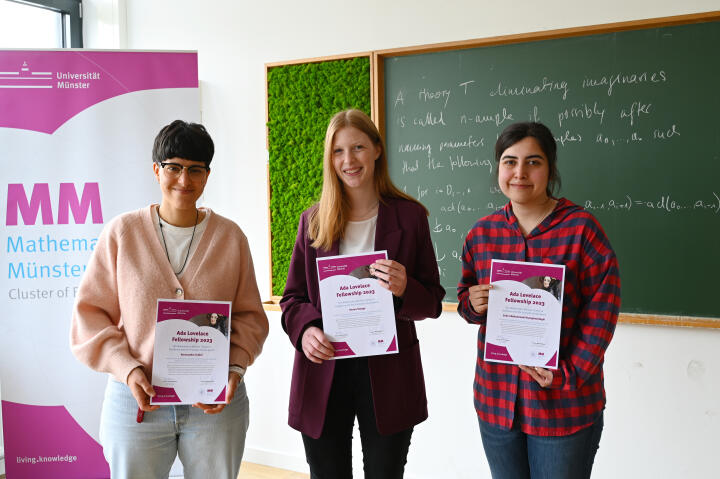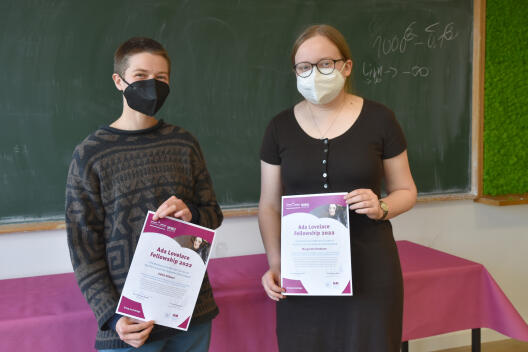Ada Lovelace Fellowship

Das Ziel der Ada Lovelace-Stipendien ist, herausragende Mathematiker:innen durch eine 25%-Aufstockung der Promotionsstelle für eine Promotion in Münster zu gewinnen und damit die Geschlechtervielfalt in der Mathematik zu fördern. Vergabekriterien sind die bereits erbrachten akademischen Leistungen und Noten im Bachelor- und Master-Studium. Seit 2016 werden jedes Jahr bis zu drei Stipendien finanziert.
Das Programm ist nach Augusta Ada Byron King (1815-1852), Countess of Lovelace, benannt. Ada Lovelace war eine britische Mathematikerin und Computerpionierin (weitere Infos: https://de.wikipedia.org/wiki/Ada_Lovelace).













